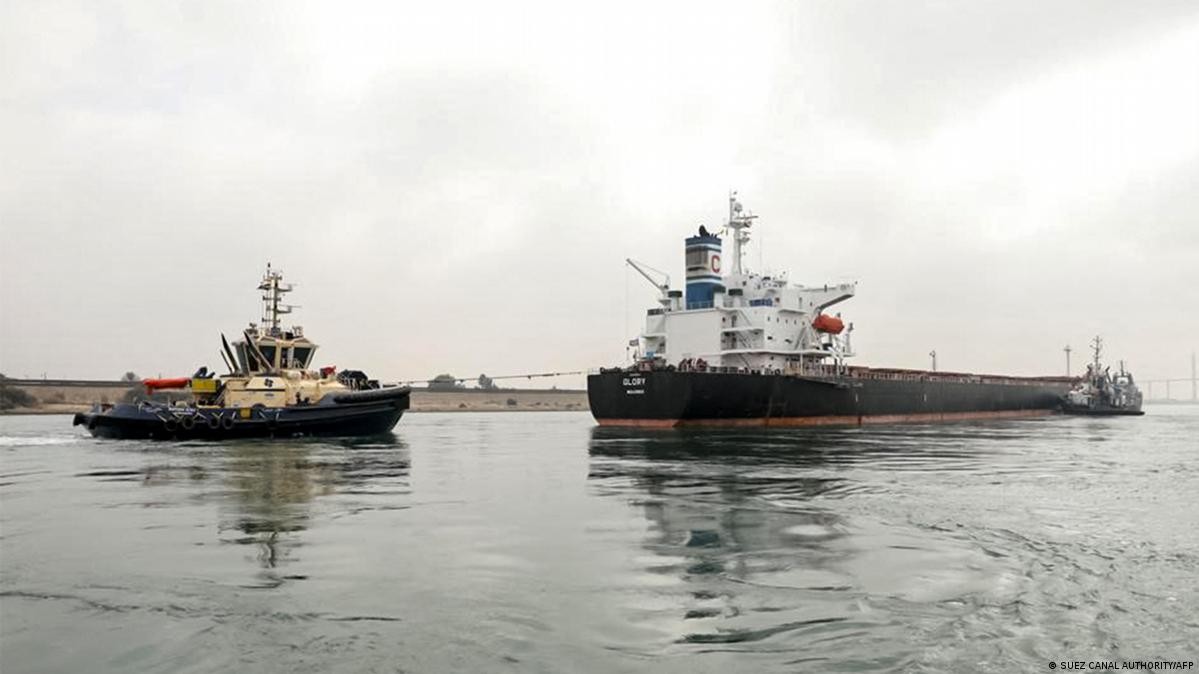GAZA CITY — The Israeli-Hamas conflict has far-reaching implications, particularly for international trade. This protracted conflict, marked by periodic escalations of violence, presents several challenges to the global trade landscape.
The French newspaper Le Figaro published a report on the potential impact of an expanded Israel-Hamas conflict on international trade. The report examines the economic downturn that could ensue if the conflict intensifies and disrupts major areas of global commerce.
According to the report, the region serves as a nexus for three continents and is a pivotal hub for international trade, largely due to the Suez Canal’s strategic position in maritime shipping traffic.
Also Read Exclusive reports on Gaza-related developments
Regional instability can disrupt trade routes and the flow of goods, especially through this Canal. Any disruption to the smooth functioning of this crucial waterway can have immediate and significant consequences for global trade, affecting the movement of goods between Europe, Asia, and Africa.
Expected scenarios
The report outlines various scenarios, ranging from those causing minimal damage to others that could have severe repercussions for international trade if the conflict expands to involve regional actors such as Hezbollah, Iran, or the United States.
It highlights the concerns of numerous global financial and economic officials regarding the economic risks posed by Israel’s war on Gaza, particularly at a time when the Middle East region is responsible for 40 percent of the world’s oil production.
The report suggests that an escalation of the conflict could disrupt hydrocarbon supplies to many countries, with the oil industry being far from the only sector affected.
The Suez Canal’s importance
The Suez Canal’s strategic significance in maritime shipping is underscored by the fact that it accounts for 10 percent to 15 percent of global traffic, making it an essential conduit and preferred trade route between Asia and Europe.
According to the report, should the Suez Canal close—a scenario deemed unlikely—European countries would face significant challenges. The absence of this expedited route would compel ships to navigate around Africa via the Cape of Good Hope, leading to delivery delays and increased shipping costs. These additional expenses would ultimately be passed on to consumers, reflected in the final product prices.
Moreover, the threat could extend to the European industry, as a Suez Canal closure would interrupt the supply of goods and products from Asia, potentially forcing several large production chains on the continent to shut down.
Experts believe that the impact of such a “catastrophic” scenario on global trade could be mitigated, considering the volume of ships that transit the Suez Canal is relatively small compared to the total transported through other maritime routes.
The report posits that the closure of the Suez Canal or the Bab al-Mandab Strait would likely have a modest impact on trade activities due to the availability of alternative routes, such as the Cape of Good Hope. However, it acknowledges that during periods of global trade deceleration, delivery times could be marginally extended.
Wael Kaddour, a former member of the Egyptian Suez Canal Authority’s Board of Directors, refuted the likelihood of the Suez Canal being directly impacted in an interview with Al Jazeera Net.
He suggested that while the war’s effect on global supply chains might be contained as long as the conflict in Gaza persists, the Middle Eastern transportation sector could face a compounded setback if Iran were to enter the fray and close the Strait of Hormuz.
The Suez Canal, an artificial waterway bridging the Mediterranean Sea with the Red Sea, significantly shortens the maritime trade route between Europe and Asia by bypassing the African continent. The canal facilitates the daily transit of approximately 30 percent of the world’s shipping containers and accounts for 12 percent of the total global trade in goods.
The situation appears dire

The Le Figaro report, which sought to downplay the potential repercussions of the conflict’s escalation on international trade, coincides with a caution from the World Trade Organization’s Director-General, Ngozi Okonjo-Iweala. She warned that an expansion of the conflict’s scope could significantly impact the already fragile trade flows in the region.
She further stated that the Middle East conflict might intensify the factors impeding trade growth, alongside other issues such as rising interest rates, the crisis in China’s real estate market, and the ongoing Russian-Ukrainian war.
The Geneva-based World Trade Organization has halved its forecast for global merchandise trade growth this year, pointing to persistent inflation, elevated interest rates, the slowdown in China’s economy, and the conflict in Ukraine. It now projects that merchandise trade volume will increase by a mere 0.8 percent in 2023, a decrease from the 1.7 percent forecasted in April.
For 2024, the organization anticipates that merchandise trade growth will reach 3.3 percent, which is nearly identical to the 3.2 percent projection made in April.
To sum it up, the Israeli-Hamas conflict is not just a regional concern; its ramifications reach into the realm of international trade by potentially disrupting vital trade routes, causing economic instability, affecting energy markets, and leading to trade-related political repercussions. Addressing these challenges is essential for preserving global economic stability and security.








